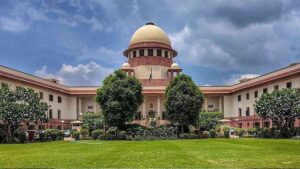
Simple membership in an unlawful organisation is a violation of the UAPA: Supreme Court rejects precedents from 2011

What is Unlawful Activities(Prevention) Act?
The Unlawful Activities (Prevention) Act, sometimes known as UAPA, is a piece of anti-terrorism legislation in India. It was initially passed in 1967 and has since undergone numerous amendments. The UAPA offers a legal framework to deal with terrorist operations and their funding as well as to stop activities that endanger India’s sovereignty, unity, and integrity.
The UAPA allows the Indian government to declare a group a terrorist organisation, at which time anyone connected to the group can be detained and charged. The Act also gives the government the right to declare an organisation illegal and take its assets. Furthermore permitted under the UAPA is the imprisonment of someone without charges for up to 180 days with the option of an extension.
The UAPA is criticised for frequently being used to silence dissent and target political opponents. They draw attention to the fact that the Act’s expansive definitions of “terrorism” and “unlawful activities” can be used to prosecute appropriate protest and dissent. Supporters counter that the UAPA is required to fight terrorism and safeguard national security.

In a significant decision, the Supreme Court overturned its 2011 decisions that had held that, in the absence of overt acts of violence, merely being a member of a prohibited organisation did not automatically constitute a crime under the Unlawful Activities (Prevention) Act of 1967 or the Terrorism and Disruptive Activities (Prevention) Act.
Landmark Judgement
Justices MR Shah, CT Ravikumar, and Sanjay Karol ruled on an appeal by a two-judge panel, concluding that simply being a member of a proscribed organisation makes one guilty of a crime and liable to prosecution under the UAPA. In light of its two-judge rulings on membership in forbidden organisations in 2011, the bench ruled the following high court judgements to be unconstitutional and overturned them:
Arup Bhuyan vs State of Assam
Arup Bhuyan, a resident of Assam, was arrested under the Unlawful Activities PA in 2009 for alleged links with a banned terrorist organization. He challenged the constitutional validity of Sections 15 and 20 of the UAPA, which deal with the presumption of guilt and denial of bail to the accused.

The Supreme Court, in its judgment, struck down the provision of presumption of guilt as violative of the principles of natural justice and the right to a fair trial. The Court held that it is the duty of the prosecution to prove the guilt of the accused beyond a reasonable doubt and the burden of proof cannot be shifted to the accused.
The Court also held that the provision denying bail to the accused under certain circumstances was not unconstitutional. However, it held that the accused should have the right to approach the court for bail and the court should consider each case on its own merits.
The Arup Bhuyan case has had significant implications for the interpretation and application of the UAPA. It has provided important safeguards for the protection of the rights of the accused and has ensured that the burden of proof remains with the prosecution.
Indra Das vs State of Assam
The Supreme Court, in its judgment, held that Section 20(8) of the UAPA violates the fundamental right against self-incrimination guaranteed under Article 20(3) of the Indian Constitution. The Court held that a confession made to a police officer cannot be considered voluntary, as there is always a possibility of coercion or pressure being applied by the police.
The Court also held that the provision allowing a confession made to a judicial magistrate to be admissible as evidence, subject to certain conditions, was constitutional. The Court stated that a confession made to a judicial magistrate is more likely to be voluntary and free from coercion.
State of Kerala vs Raneef
Raneef, a resident of Kerala, was arrested by the police under the UAPA for alleged involvement in a conspiracy to carry out terrorist activities. The prosecution relied on certain intercepted telephone conversations between Raneef and others as evidence of his involvement in the conspiracy.
Raneef challenged the admissibility of the intercepted telephone conversations as evidence, arguing that they were obtained in violation of his right to privacy and the procedural safeguards under the Indian Telegraph Act. He also challenged the constitutional validity of certain provisions of the UAPA.
The Supreme Court, in its judgment, held that the intercepted telephone conversations were admissible as evidence, as they were obtained in accordance with the procedure established under the Indian Telegraph Act. The Court also upheld the constitutional validity of the relevant provisions of the UAPA.
The Court observed that the UAPA was a special legislation enacted to deal with terrorism and its funding and that the prosecution was not required to prove the actual commission of a terrorist act. It was sufficient to prove that the accused was a member of a terrorist organization and had participated in its activities.







